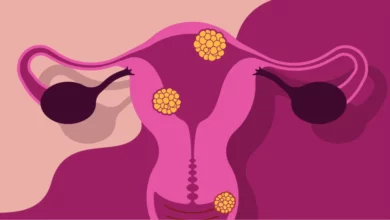As people age they seem to complain more of various aches and pains, but pain, as vague as it may be, can also be an early symptom of some cancers, although most pain complaints are not from cancer.
Pain that persists and is unexplained needs to be checked out. Expect your physician to take a careful history, and based on that information decide what further testing, if any, is needed.
No. 12: Changes in the Lymph Nodes
If you notice a lump or swelling in the lymph nodes under your armpit or in your neck — or anywhere else — it could be worrisome, Linden says.
“If you have a lymph node that gets progressively larger, and it’s [been] longer than a month, see a doctor,” she says. Your doctor will examine you and figure out any associated issues (such as infection) that could explain the lymph node enlargement.
If there are none, your doctor will typically order a biopsy.
No. 13: Fever
If you have a fever that isn’t explained by influenza or other infection, it could point to cancer. Fevers more often occur after cancer has spread from its original site, but it can also point to early blood cancers such as leukemia or lymphoma, according to the American Cancer Society.
Other cancer symptoms can include jaundice, or a change in the color of your stool.
Expect your doctor to conduct a careful physical exam and take a medical history, and then order tests such as a chest X-ray, CT scan, MRI, or other tests, depending on the findings.
No. 14: Fatigue
Fatigue is another vague symptom that could point to cancer — as well as a host of other problems. It can set in after the cancer has grown, but it may also occur early in certain cancers, such as leukemia or with some colon or stomach cancers, according to the American Cancer Society.
No. 15: Persistent Cough
Coughs are expected with colds, the flu, allergies, and sometimes are a side effect of medications. But a very prolonged cough — defined as lasting more than three or four weeks — should not be ignored, Mishori says.
You would expect your doctor to take a careful history, examine your throat, check out your lung functioning and perhaps order X-rays, especially if you are a smoker.




